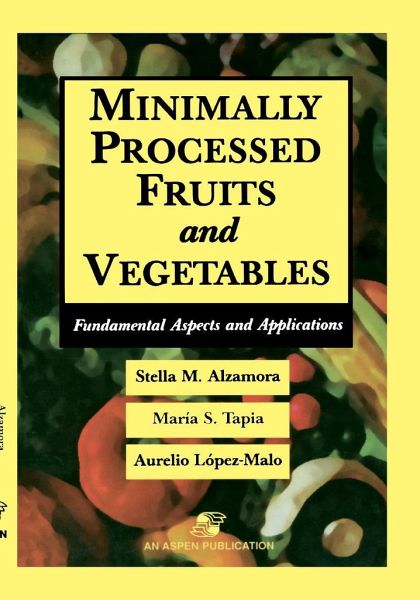Nicht lieferbar

Minimally Processed Fruits and Vegetables
Versandkostenfrei!
Nicht lieferbar
An Aspen Food Engineering Series Book. This new reference work in the Food Engineering Series covers basic and new information and issues, and new and refined existing technologies in the preservation of fruits and vegetables with a minimum of processing. It begins with a section on detecting and controlling good and harmful microorganisms in fruits and vegetable tissues, then surveys a range of preservation technologies, talks about new technologies being developed in landmark multinational projects, and ends by covering the legal aspects of minimally processed produce in the United States, E...
An Aspen Food Engineering Series Book. This new reference work in the Food Engineering Series covers basic and new information and issues, and new and refined existing technologies in the preservation of fruits and vegetables with a minimum of processing. It begins with a section on detecting and controlling good and harmful microorganisms in fruits and vegetable tissues, then surveys a range of preservation technologies, talks about new technologies being developed in landmark multinational projects, and ends by covering the legal aspects of minimally processed produce in the United States, Europe, South America, and Asia.





